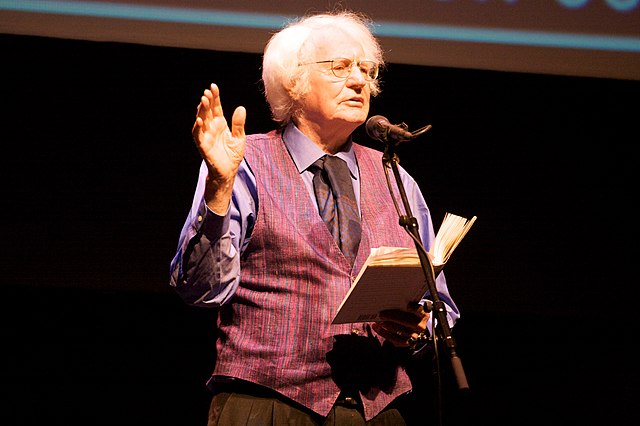Mythopoetic men's movement
The mythopoetic men's movement was a body of self-help activities and therapeutic workshops and retreats for men undertaken by various organizations and authors in the United States from the early 1980s through the 1990s. The term mythopoetic was coined by professor Shepherd Bliss in preference to the term "New Age men's movement". Mythopoets adopted a general style of psychological self-help inspired by the work of Robert Bly, Robert A. Johnson, Joseph Campbell, and other Jungian authors. The group activities used in the movement were largely influenced by ideas derived from Swiss psychiatrist Carl Gustav Jung, known as Jungian psychology, e.g., Jungian archetypes, from which the use of myths and fairy tales taken from various cultures served as ways to interpret challenges facing men in society.
The Fight in the Forest (Hans Burgkmair, ca. 1500/1503), illustrating the tale of Iron John
Robert Bly
Robert Elwood Bly was an American poet, essayist, activist and leader of the mythopoetic men's movement. His best-known prose book is Iron John: A Book About Men (1990), which spent 62 weeks on The New York Times Best Seller list, and is a key text of the mythopoetic men's movement. He won the 1968 National Book Award for Poetry for his book The Light Around the Body.
Bly at the "Poetry Out Loud" finals, Minnesota 2009


